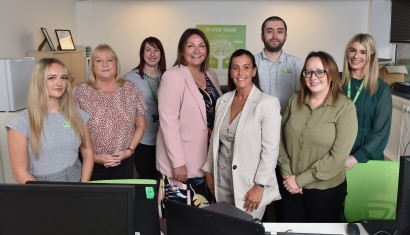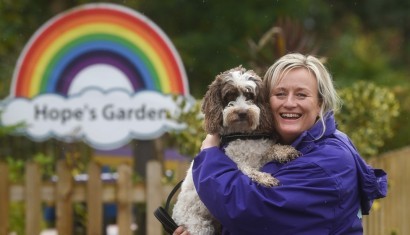
Forced to close or reduce operations in factories and offices, owners and senior managers involved in the North West digital technology adoption pilot faced their toughest test as they figured out how to restart, reassure their uncertain workforce and customers, and recover.
Forsberg Services, a Heysham-based engineering business which manufactures high-precision navigation solutions, has revealed that changing its approach to the new needs of their workforce and business is helping them navigate the impact of the pandemic.
Agile leadership, flexibility, transparency, open communications and being receptive to learning from others have proved vital new tools for the future. There is also a rallying call not to return to the old ways, as manufacturers look to recover and cultivate new paths to growth.
Donna Edwards said: “From the start of the pandemic Made Smarter has been in regular contact with leaders across the region offering support and advice. Our conversations revealed some striking changes in the traditional norms, attitudes and behaviours that guide leaders. “They have demonstrated agility and adapted to an unprecedented and emerging situation to ensure people and companies have remained functional. New flexible approaches have helped individuals and teams cope with the intense challenges to their daily and working lives. “In many cases they have used this experience to change longstanding practices and find better ways of doing things. At the heart of this need for change is technology, which has proved invaluable in allowing manufacturers to work remotely to maintain operations and communications and prompted SMEs to accelerate and broaden their adoption of digital tools.”
During the COVID-19 lockdown Lancaster University Management School has continued to work with business leaders, through the Made Smarter Leadership Programme, giving them the time and space to discuss new challenges faced at these times and highlight new opportunities to innovate and develop.
Chris Mayne, Managing Director at Forsberg Services, believes agile leadership helped him navigate the most challenging periods. “My approach varied according to the scenario,” he said. “The decision to speed up the remote working plan at the early stages was an authoritative approach to map the way and set expectations. Implementing our plan to mobilise the business into remote working was a democratic approach as it was imperative that we involved everyone in the process. “There have also been clear autocratic moments, not something I use very often, but crucial for on the spot decisions about cash flow.
There was a switch to an affiliative style as we planned for those working in the business and those returning to work, as the emphasis was on ensuring our staff were safe and comfortable.” The Made Smarter network also proved valuable in supporting Mayne, who is part of the first cohort on the Made Smarter Leadership Programme, which gives a strategic view to support the adoption of hi-tech and digitally-based manufacturing techniques into their own production processes. “For my own resilience I have leaned on the network of individuals that I have built up from the Made Smarter Leadership Programme.
Talking to trusted individuals in a similar situation really helps build perspective and clarity.” It isn’t just SME leaders who have experienced lightbulb moments during the pandemic.
Glyn Jones, chair of Made Smarter’s North West adoption steering group and BAE Systems’ delivery director for the Tempest programme, based in Preston, said COVID-19 challenged long-standing paradigms in his business. He said: “COVID brought a huge amount of focus, energy and some amazing innovation to get the business back on its feet. “Things we previously thought impossible were achieved in the space of weeks and whilst it was challenging both personally and professionally for a lot of people, we saw some amazing things happen. “In the past 25 years I have led many different teams and I have never experienced anything like this, but it is often at times of great adversity that people’s leadership skills come to the fore. I am sure many of us have seen that in the past few months. “There is no leadership book on how we deal with a situation like this, so being open to learning from each other adjusting our approach is vital. “We will continue to face challenges for a long while yet, but we must find a way to harness some of positive changes, embrace this new attitude and new ways of working rather than simply going back to the way things used to be.”
Registration for the next Leadership Programme, delivered by Lancaster University Management School, starting in October is now open. For more information or to apply for your place visit www.lancaster.ac.uk/lums/madesmarter or alternatively: email madesmarter@lancaster.ac.uk or call 01524 593 881.

Kitchen table to regional leader: Hyndburn-based careers education service plans for rapid growth with Boost support
Emma Woan and Tracy Gardiner
Education Business Partnership

Award-winning therapy dog specialist on recruitment drive after funded Boost support
Alison Colley
Hope's Therapy Dogs, Skelmersdale



The website uses cookies.
Some are used for statistical purposes and others are set up by third party services. By clicking 'Accept all & close', you accept the use of cookies. For more information on how we use and manage cookies, please read our Cookie Policy.